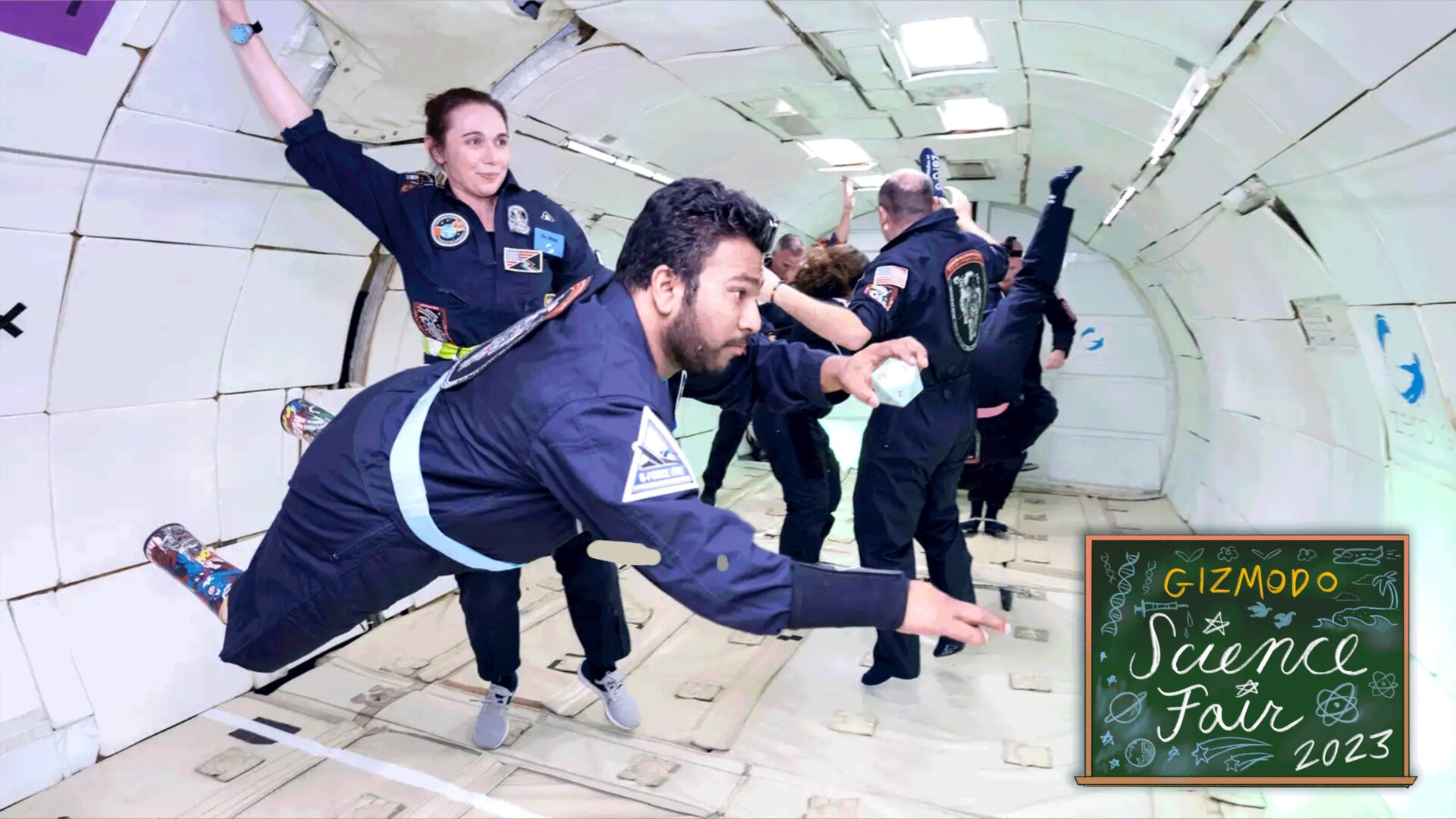The Theory Of Everything is a remarkable, moving portrait of Stephen Hawking, who overcame unthinkable obstacles to revolutionize science. It’s a beautiful romance that spans the 1960s through the 1980s. Too bad the movie mostly glosses over the actual science that Hawking became famous for. Minor spoilers below…
Based on a book by Hawking’s first wife Jane, The Theory of Everything starts with Stephen Hawking as a student at Cambridge University in the early 1960s. It follows their romance and marriage along with his diagnosis of ALS, and Hawking’s slow degeneration. And it ends in the late 1980s, with Hawking’s publication of his famous book A Brief History of Time.
Eddie Redmayne, who plays Hawking, does a fantastic job of capturing the brilliance and louche playfulness of the famous physicist, with a faraway look in his eyes in the early, youthful parts of the film and a quiet intensity in the later parts, after Hawking is confined to a wheelchair and loses the ability to speak. The main image that stuck with me after watching the film is the enigmatic, sly smile that Redmayne wears in a lot of the film’s most poignant scenes.
Where a lot of movies would have gone for pathos in the story of a brilliant man who’s gradually losing control over his motor reflexes, The Theory of Everything instead chooses to emphasize Hawking’s force of personality. The worse his motor neuron degneration becomes, the more powerful Stephen Hawking is. And yet, the movie never sugarcoats the difficulty and heartache that come with a degenerative neurological condition. The film really starts to “click” as a narrative once Hawking gets his diagnosis, because that introduces an element of conflict that’s missing from the earlier parts of the film.
At the same time, this movie’s relationship storyline has moments of honesty and keenly observed pain. But it also sometimes seems to cloak some of the more painful moments in Stephen and Jane’s relationship in layers of preciousness, rather than convey the stark truth. But this film is constructed as a romance rather than a “warts and all” biopic, so a certain amount of sweet illusion is to be forgiven.
In the hands of Redmayne and director James Marsh, Hawking is portrayed as a sensual figure, a mischievous disruptor of people’s preconceptions, and a dreamer — who uses pure mathematics to confirm his intuitions about the universe. Hawking’s comic timing is played up, even after he’s speaking through a voice synthesizer — some of the most powerful emotional scenes turn unexpectedly funny because Hawking cracks a hilarious joke at just the right moment.
The movie’s attention to detail is incredible, both in recreating the look and feel of twentieth-century Cambridge and in capturing the tiny nuances of every emotional scene. But when it comes to discussing science, The Theory of Everything resorts to some very broad brushwork — you sort of get that Hawking built on the work of mathematician Roger Penrose to come up with a theory about a black hole at the start of the universe, and later disproved his own theory. You get a quick-and-dirty idea of what Hawking radiation is, and Hawking’s ideas about the flow of time. There are little nuggets of science, but they’re mostly kept so vague as to be almost meaningless.
At its best, the movie finds ways to show us the science rather than explain it — like in one early scene, where Stephen and Jane spin each other around while talking about winding time backwards to the beginning of the universe. One sequence where Stephen Hawking gets his sweater stuck halfway over his head and sees the light coming through the yarn threads, and then this turns into the light of suns and the fabric of the universe, is trippy and brilliant.
But for the most part, the film deals with science as something that people toss back and forth as a series of buzzwords. You get the sense that men in starchy collars are arguing about black holes, and that Hawking is really clever, but you pretty much have to take the film’s word for it about Hawking’s cleverness. Which is too bad, in a film that celebrates a great scientist’s achievements. I’m curious to hear what actual physicists will think about this film.
Also, one of the conflicts in the film comes from the fact that Hawking is an avowed atheist, while Jane believes in God and sings in a church choir. The movie isn’t ever entirely sure what to do with this conflict, other than throw it out there — although it does lead to one of the funniest moments in the entire film, towards the end. It’s unclear how much of this conflict is based on a real debate between husband and wife, and how much it’s emphasized simply so the movie’s pure science will have something to be in opposition to.
On the whole, though, Theory of Everything is a nearly perfect exploration of how a brilliant mind can overcome incredible physical limitations, as well as a terrific historical romance. As a portrait of a heroic scientist, it’s top notch — even if the movie misses its chance to do actual science education.













